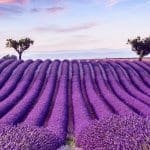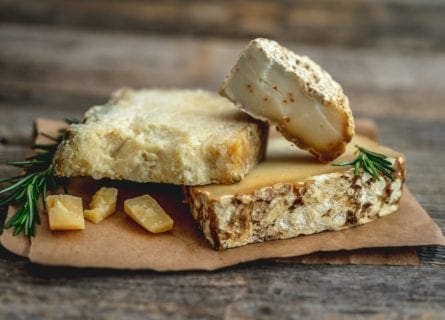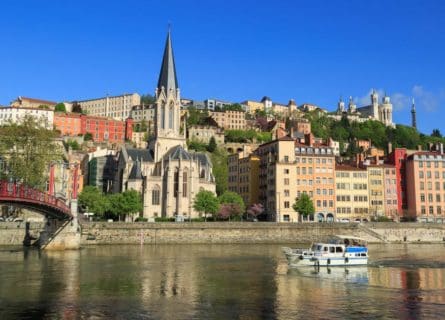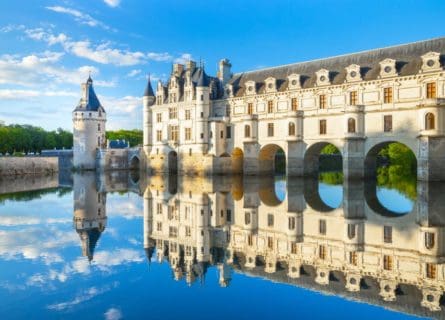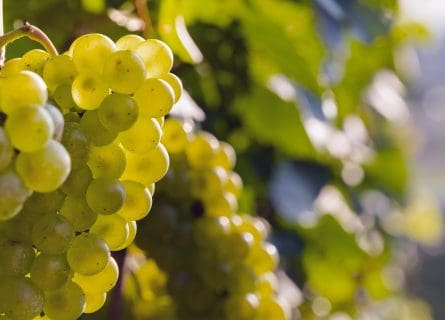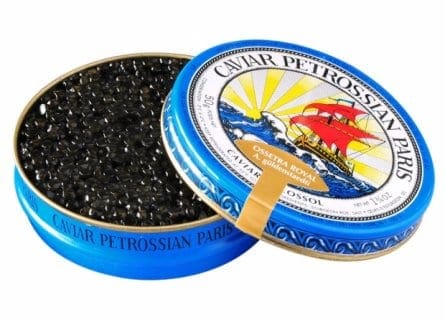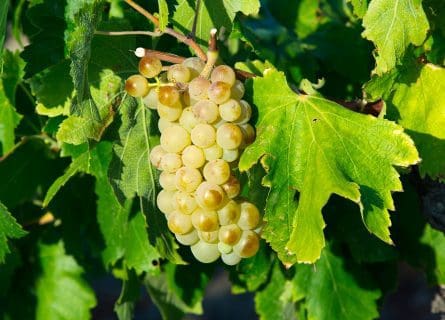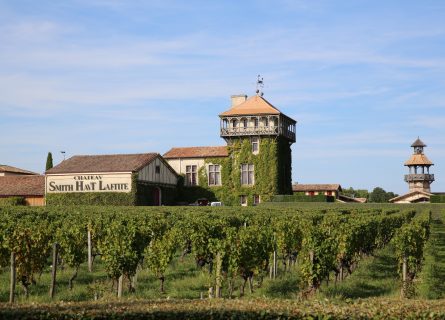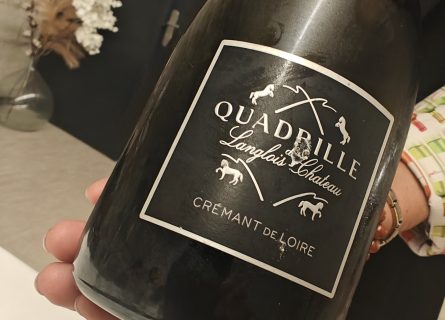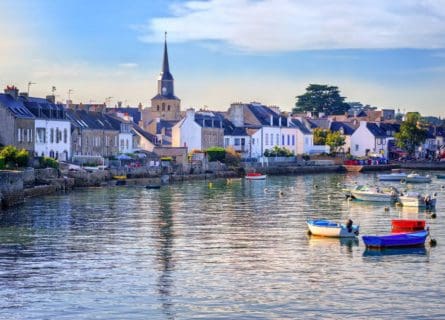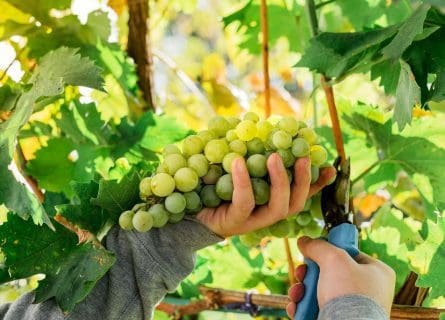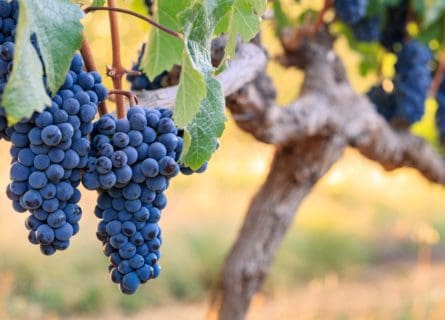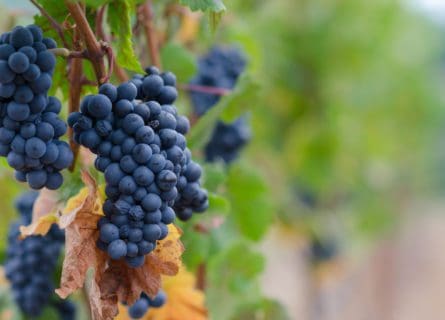Chateau La Coste Winery Guide
EXPLORE ALL OUR RECOMMENDED FRENCH WINERIES
Last updated: November 24, 2023
Winery Overview
A restored wine estate, a monument to contemporary architecture, a luxury tourist destination – what exactly is Chateau La Coste? The answer depends on your personal desires; this is a special and unique part of Provence, where tourism, art, architecture, and winemaking combine to form a harmonious and holistic marriage. Indeed, it is impossible to single out one aspect of this beautiful property as its signature hallmark. Chateau La Coste is one of those rare luxury experiences that cater to every taste, whether you’re a passionate gastronome, oenophile, or art fanatic.
Residents of this corner of Provence with long memories will remember Chateau La Coste’s existence before its sale in 2002. The estate was so very different before Irish business tycoon Paddy McKillen decided to invest in Provencal winemaking that year. Wine has been made in Provence for many centuries; the original buildings were constructed at the behest of the Bishop of Aix in 1682. The original bastide was used to defend the territory, and even today, visitors can see remnants of La Coste’s complex and fascinating history. Ancient pathways, a chapel, stone walls, and a gorgeous 17th-century rose-pink villa contrast delightfully with the modern additions. As with most French wine estates, La Coste changed hands several times over the centuries, although the previous owner held onto his estate for over 68 years. However, financial and other pressures conspired to form the perfect storm, and in 2002 the property was sold to entrepreneur Paddy Mckillen. The name will be instantly familiar to hoteliers worldwide; Mckillen part-owns several luxury properties, including The Berkeley Hotel in London.
In 2020, the modest and surprisingly reclusive Mckillen will celebrate over 17 years of owning what has become Provence’s most iconic tourist and wine destination. He has invested heavily in the project is something of an understatement; Mckillen commissioned a new winery and visitor center designed by prize-winning architects Renzo Piano and Jean Nouvel. The visitor center opened its doors to the public in 2011, although Mckillen has since opened several restaurants and a luxury boutique hotel adjacent to the property. La Coste is not alone in offering luxury rural accommodation in Provence. Still, it has earned a justifiable reputation for its impeccably high standards, not least in the Francis Mallman collaboration restaurant. The Argentine chef and author was only too keen to get involved with a project as prestigious as La Coste. To sample Mallman’s exquisite cuisine in a quiet corner of Le-Puy-Sainte-Réparade – paired with local wines, of course – is an experience every foodie must enjoy once in their lifetime.
Art and architecture lovers are also constantly rewarded and astounded by what is offered at La Coste. The awe starts with a walk across the estate’s beautiful heartland, where a diverse collection of modern artworks and architectural masterpieces can be seen from every direction. Most impressive is the Tadao Ando Centre, which was conceived by the legendary architect and today functions as a reception area, bookshop, and cafe. Visitors also love the gigantic Crouching Spider, designed by Louise Bourgeois, as a centerpiece to the generously proportioned infinity pool. Frank O. Gehry’s Pavilion de Musique and Sean Scully’s Wall of Light Cubed are the icing on the cake – we’d need many more words to do all these masterpieces justice.
Yet, with all the hype and excitement over the art and architecture, celebrity chefs, and luxury accommodation, it is sometimes easy to forget that Chateau la Coste is, first and foremost, a wine producer. Mckillen’s ambition was to make terroir-driven, vineyard-expressive wines using only sustainable methods, a goal he has achieved. Strictly adhering to biodynamic principles, the estate was awarded official organic certification in 2009. However, the real masterstroke was appointing Matthieu Cosse in 2006, a very talented winemaker who cut his teeth in Cahors. Using the latest viticultural analysis, Cosse shook up the vineyard management and winemaking at La Coste, planting new varieties according to their terroir suitability rather than simply what was commercially lucrative. The results have been dramatic – Chateau La Coste now releases some of the best wines in Côtes de Provence, with a signature freshness and lightness of touch that is very attractive. Judiciously oaked, intelligently made, and approachable from the outset, these are the real stars of La Coste. The gastronomy, art, and restaurants are a lovely bonus, but the game-changing wines excite discerning sybarites.
Wines produced
-
Chateau La Coste La Bulle
80% Grenache, 20% Cinsault. Hand-harvested organic grapes are treated to a light maceration in stainless steel tanks, before a gentle fermentation designed to extract a lighter color and soft tannins. Accessible on release. -
Chateau La Coste Grand Cuvee Chateau la Coste
50% Syrah, 50% Cabernet Sauvignon. Hand-harvested organic grapes are fermented in stainless steel tanks. After fermentation, the wine is aged for 18 months in a mixture of new, one and two year oak barrels. Made in tiny volumes, the wine is capable of extended cellaring after its release. -
Chateau La Coste Grand Vin Red
60% Cabernet Sauvignon, 40% Syrah. Hand-harvested organic grapes are fermented in stainless steel tanks. After fermentation, the wine is aged in a mixture of new and older barrels. -
Chateau La Coste Grand Vin White
90% Vermentino, 10% Chardonnay. Hand-harvested organic grapes are fermented in stainless steel tanks. After fermentation, the wine is aged on its lees before bottling. -
Chateau La Coste Grand Vin Rose
40% Syrah, 60% Grenache. Hand-harvested organic grapes are treated to a light maceration in stainless steel tanks, before a gentle fermentation designed to extract a lighter color and soft tannins. Accessible on release, this is the estate's most refined rose wine. -
Chateau La Coste Les Pentes Douces Rouge
55%Cabernet Sauvignon, 45% Syrah. Hand-harvested organic grapes are fermented in stainless steel tanks. After fermentation, a percentage of the wine is aged in French oak. Accessible upon release, the wine can be cellared for at least 10 years. -
Chateau La Coste Les Pentes Douces Blanc
55% Cabernet Sauvignon, 45% Syrah. Hand-harvested organic grapes are fermented in stainless steel tanks. After fermentation, a percentage of the wine is aged in French oak. Accessible upon release, the wine can be cellared for at least 5 years.
Winery Contact Details
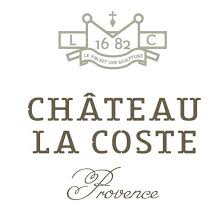
Chateau La Coste
750 Route de la Cride13610 Le Puy Sainte Rèparade
Provence, France
Email: [email protected]
Tel +33 (0) 4 42 61 92 90
Fax Find out more
Facts & Figures
Appellation
AOP Coteaux D'Aix En Provence
Founded
1682
Area under Vine
250 Hectares (estate total, including land not planted with vineyards)
Age of vines
Oak barrel origin
French
Winemaker
Matthieu Cosse
Owner
Paddy McKillen
Production
700,000/800,000 litres per annum
Grape varietals
Grenache, Cinsault, Cabernet Sauvignon, Syrah, Chardonnay, Vermentino, Grenache Blanc, Sauvignon Blanc, Viognier
Grape Varieties Used by the Winery
-
Chardonnay
Chardonnay is a green-skinned grape varietal native to the Burgundy wine region in France and one of the most popular varieties worldwide.
Find out more -
Grenache Blanc
Grenache blanc is a white wine grape varietal popular in the Rhône, Châteauneuf-du-Pape and Languedoc-Roussillon regions of Southern France.
Find out more -
Sauvignon Blanc
The sauvignon blanc grape varietal, originally from the Bordeaux region of France, is now one of the world's most loved white varieties.
Find out more -
Vermentino
Explore the Renaissance of Sardinian Vermentino: From Forgotten Grape to Crisp Elegance. Discover Now!
Find out more -
Viognier
Viognier comes from the northern Rhône valley AOC of Condrieu and is where its most famous white wines are produced.
Find out more -
Cabernet Sauvignon
Discover the irresistible allure of Cabernet Sauvignon—a worldwide favorite with robust, dark-bodied flavor. Unleash your wine journey today!
Find out more -
Cinsault
Cinsault is a red wine grape that is important in the Languedoc-Roussillon wine region of France because of its tolerance to high temperatures.
Find out more -
Grenache
Discover grenache, a mediterranean grape that is dark-skinned red wine grape variety and an unlikely hero of a grape
Find out more -
Syrah
Syrah is dark-skinned and perhaps the most underrated of the 'noble' red grape varieties.
Find out more
Further Reading: Discover More Related Blog Content
More information
If you would like us to customize an exclusive luxury tour, contact us and let us know your travel plans. We offer luxury food and wine tours for private groups of a minimum two guests. In addition, all of our private, chauffeured tours are available year-round upon request.

